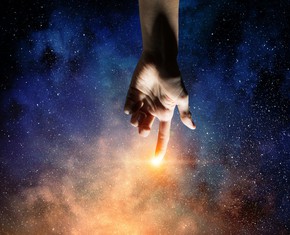The views expressed in our content reflect individual perspectives and do not represent the authoritative views of the Baha'i Faith.
When my family and I moved to Vienna, Austria in 1991, international telephone calls were extremely expensive, making it pretty prohibitive to talk to far-flung friends and family.
Our monthly telephone bill often exceeded 4,000 Austrian Schilling a month – over $350. There was no internet. Return flights home to the UK, sometimes 3–4 trips a year, cost in excess of $300 a trip.
By the time I joined the Skype community 14 years later in 2004, it had over 90 million subscribers. This simple-to-use internet telecommunications tool made direct dialling a relic of the past.
At last count more than 300 million people subscribed to this same service, a massive increase of over 200 million users in just 13 years. Skype is now just one of many such networks, all enjoying the benefits of newly improved high quality links with very often lower fixed monthly charges. International telephone calls can be conducted for next to nothing worldwide. People are becoming connected with one another in every country in the world – about half of the world’s population uses these kinds of services now.
Taken in isolation, this may not sound like a big deal in and of itself, but when added to the amazing explosion in low cost air travel, with unbelievable bargains for increasing numbers of ordinary people in an expanding number of countries around the globe, this profound change in how we connect and congregate has become much more than simply a technological revolution – it has become one of the many harbingers of a nascent global oneness.
The Baha’i teachings predicted this revolution in the 1930’s, and linked its emergence to the appearance of a world civilization:
The unity of the human race, as envisaged by Baha’u’llah, implies the establishment of a world commonwealth in which all nations, races, creeds and classes are closely and permanently united, and in which the autonomy of its state members and the personal freedom and initiative of the individuals that compose them are definitely and completely safeguarded. …
A mechanism of world inter-communication will be devised, embracing the whole planet, freed from national hindrances and restrictions, and functioning with marvellous swiftness and perfect regularity. …
Who can doubt that such a consummation – the coming of age of the human race – must signalize, in its turn, the inauguration of a world civilization such as no mortal eye hath ever beheld or human mind conceived? Who is it that can imagine the lofty standard which such a civilization, as it unfolds itself, is destined to attain? Who can measure the heights to which human intelligence, liberated from its shackles, will soar? Who can visualize the realms which the human spirit, vitalized by the outpouring light of Baha’u’llah, shining in the plenitude of its glory, will discover? – Shoghi Effendi, The World Order of Baha’u’llah, pp. 203-205.
So yes, we can communicate and travel more easily and cheaply – but some say that things are not moving fast enough.
Since we’ve created a way to communicate everywhere, what about creating a humane collective consciousness? Could our level of love and social empathy expand, too? Are we going to allow one half of the global human family to fade away into extinction or oblivion, or is this unbelievable technological growth in fact a sign of a potential turning point in terms of the survival of the species? If we have reached a turning point, then what are the spiritual, social, economic and environmental consequences of the current state of the world, which affects over 7.7 billion people and the food production system we have come to rely upon?
We can all cite the problems we face: hunger, war, poverty, racism, tyranny, the degradation of the environment, and on and on. With so much global communication and up-to-the-minute live news coverage, can people still remain unaware of what needs to change?
I would suggest not. In fact, I would say that the solution is perhaps far easier to implement then we may at first realize. Just recall one of the amazing global responses to a natural disaster like a recent hurricane, earthquake or tsunami, which might give us some indication of how simple solutions can be to implement, when we actually express our love of humanity by rallying to the call of unified action regardless of race, culture or nationality.
In truth, we do not have to look beyond our immediate doorsteps to find simple solutions to many of our problems. Do I care enough about my neighbor to want to make the effort to get to know him or her? Do I love each and every person I come into contact with, regardless of their appearance or social status, as a member of my own family, or do I shun human contact with them in the fear that I may get hurt or rejected? In my workplace do I make enough time to get to know my colleagues really well? In our schools do our teachers have enough opportunity to really get to know their pupils? Do partners, parents and their children ever get the chance to repair broken relationships within their own homes?
If every stranger became an acquaintance and every acquaintance a friend would there be any enemy? Are we always good friends to ourselves, or are we all too often our own worst enemies? So far in human history, we have sequentially discovered the importance of living together in families, small groups, tribes and nations. We have forged strong links with our fellow human beings in terms of our language, ethnicity, religion, nationality and political affiliations. Is it now not time for us to discover what the joys of true global citizenship might be? I would suggest that it is. There is no other viable alternative that I can think of.
Learning how to live together as part of a vast global community and celebrating rather than trying to deny our human and cultural diversity is perhaps one of the only things left untried. Let’s try it, then – let’s make the ever-shrinking world of humanity that we are now organically linked with strive to build an indissoluble bond of love and unity.
Is it not time at least to start laying the foundations for this global oneness before it’s too late? Let’s dare to be different, and, in the words of Abdu’l-Baha:
One must see in every human being only that which is worthy of praise. When this is done, one can be a friend to the whole human race. If however, we look at people from the standpoint of their faults, then being a friend to them is a formidable task. – Selections from the Writings of Abdu’l-Baha, p. 169.
You May Also Like
Comments

















“The remarkable period that just ended with sunset in Hawaii has opened a new window onto the world. Over the course of three rotations of the Earth, humanity on every land commemorated the anniversaries of the births of the Bab and Baha’u’llah.
These days of commemoration offer a glimpse into a humanity that is rarely, if ever, so profoundly depicted in its oneness. Neither borders, nor conflicts between nations, nor prejudices of class, race, religion, or culture, were able in the least to obscure the reality that all humanity is one.”
72 hours, ...one world (https://news.bahai.org/story/1369/)